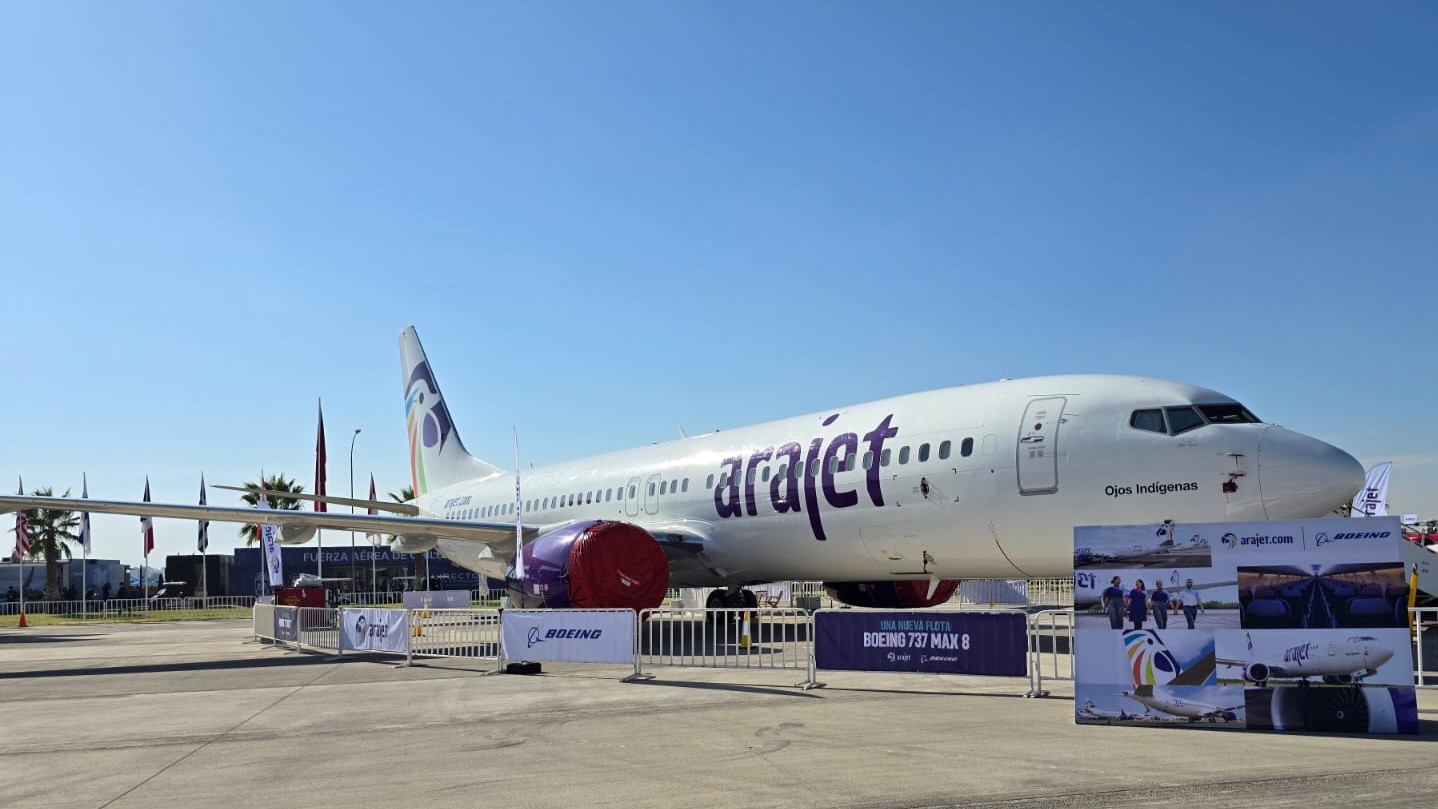Boeing Emphasizes the Strategic Significance of Latin America in Aerospace Development
Chile’s Feria Internacional del Aire y el Espacio (FIDAE), in its 2024 edition, remains the frame of reference for large global companies. Thus, Boeing cannot miss the appointment and through Landon Loomis, president for Latin America and the Caribbean, the company tells us the main concepts of its presence.
«Boeing’s participation in FIDAE coincides with a time of challenges and expanding opportunities in Latin America. The demand for air travel in the region is growing rapidly, driven by the growing middle class, economic development, and increasing tourism. This presents a unique opportunity for the region to expand its aerospace capabilities on a global scale.»
«Through our presence and growing partnerships, we seek to position the region in a new and broad global market for commercial aircraft, projected to be worth more than 8 trillion dollars over the next two decades. Just in commercial aviation, the Latin America and Caribbean region is expected to require 2,105 new aircraft during this period. This will generate a demand for 128,000 new professionals, including pilots, cabin crew, and technicians in the region.»

«Our partnerships in the Latin American markets involve close collaboration with local players to strengthen the aviation ecosystem. Boeing has more than 40 direct suppliers and numerous indirect suppliers in Latin America, manufacturing structures, wings, aerospace propulsion, and inputs.»
«We have made substantial investments to maintain our position as the world leader in aerospace engineering and surpassing the limits of aerospace technology. We have dedicated resources to the region, such as the recently inaugurated Boeing Engineering and Technology Center in Brazil, located in São José dos Campos, which joins a network of 15 international innovation centers.»
«Today, more than 15% of Boeing’s over 60,000 engineers are located outside the United States, and our goal is to increase this percentage to 20% in the coming years, with a focus on expanding in countries like Brazil.»
«The future of air travel will be characterized by greater technology and sustainability. Airlines and manufacturers are seeking to achieve the ambitious goal of net zero emissions for the aviation industry by 2050. With this in mind, we are committed to delivering new commercial aircraft certified to operate with 100% sustainable aviation fuel (SAF) by 2030.»
«This challenge presents a new opportunity for Latin America to lead, especially in the development of SAF. We recognize SAF as the most immediate and significant solution to reducing carbon emissions in the coming decades. In the region, we have found valuable partners with whom we collaborate on SAF initiatives. Brazil, in particular, is a global leader in aviation, energy, and agriculture, boasting a world-class biofuels industry.»
«In 2021, Boeing partnered with the Roundtable on Sustainable Biomaterials to assess the availability and potential of biobased waste for SAF production in Brazil. The findings suggest that Brazil has the potential to produce up to nine billion liters of SAF from the mapped waste, which equates to 125% of the current consumption of fossil kerosene (Jet A) in the country.»
«Recently, we expanded collaboration with the Universidade Estadual de Campinas (Unicamp), one of Brazil’s leading universities, to create a freely accessible database called SAFMaps, mapping promising and sustainable SAF resources in the country.»
«Also working to expand the knowledge we generate in Brazil with other Latin American countries. For example, we support the use of SAF in flights in Mexico, Peru, and Colombia during the Summit of the Americas in 2022. We share best practices with the governments of Chile, Mexico, Colombia, and Brazil to define policies that can support the aviation sector in its transition to a sustainable future.»
«Our investments go beyond products and technologies; we invest in people. Boeing works with the Pan American Development Foundation (PADF) in eight Latin American countries to train teachers and prepare and inspire students through the STEM Americas Academies. Since 2008, we have invested over US$5 million in Latin American communities to improve diversity, qualifications, and interest in STEM careers.»
«We are committed to continuing our collaboration with Latin America, supporting its aerospace sector to maintain global connectivity and remain at the forefront of the exciting and strategic advances of the industry.»

/https://aviacionlinecdn.eleco.com.ar/media/2024/04/60175129.131201.jpg)
Para comentar, debés estar registradoPor favor, iniciá sesión